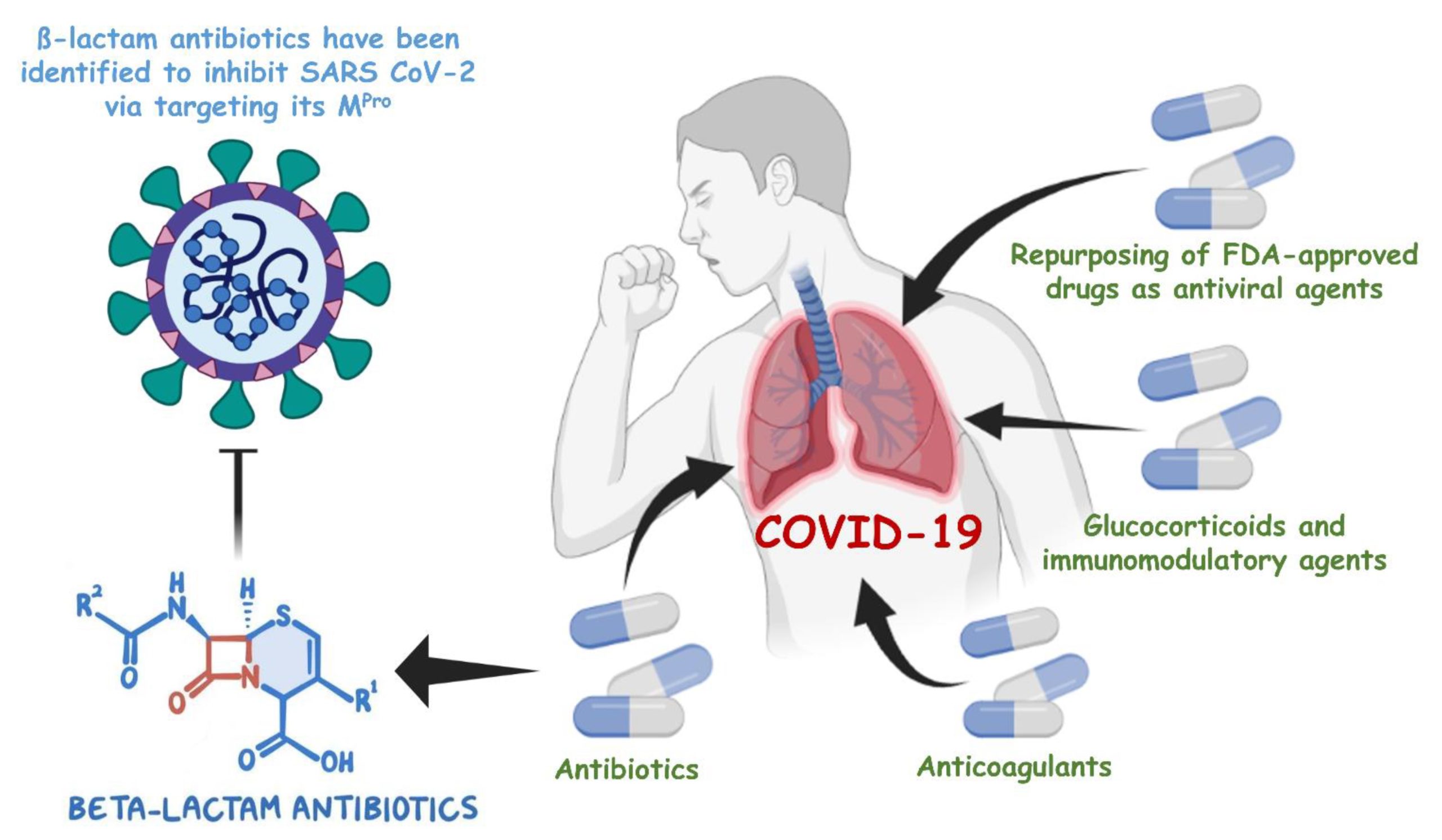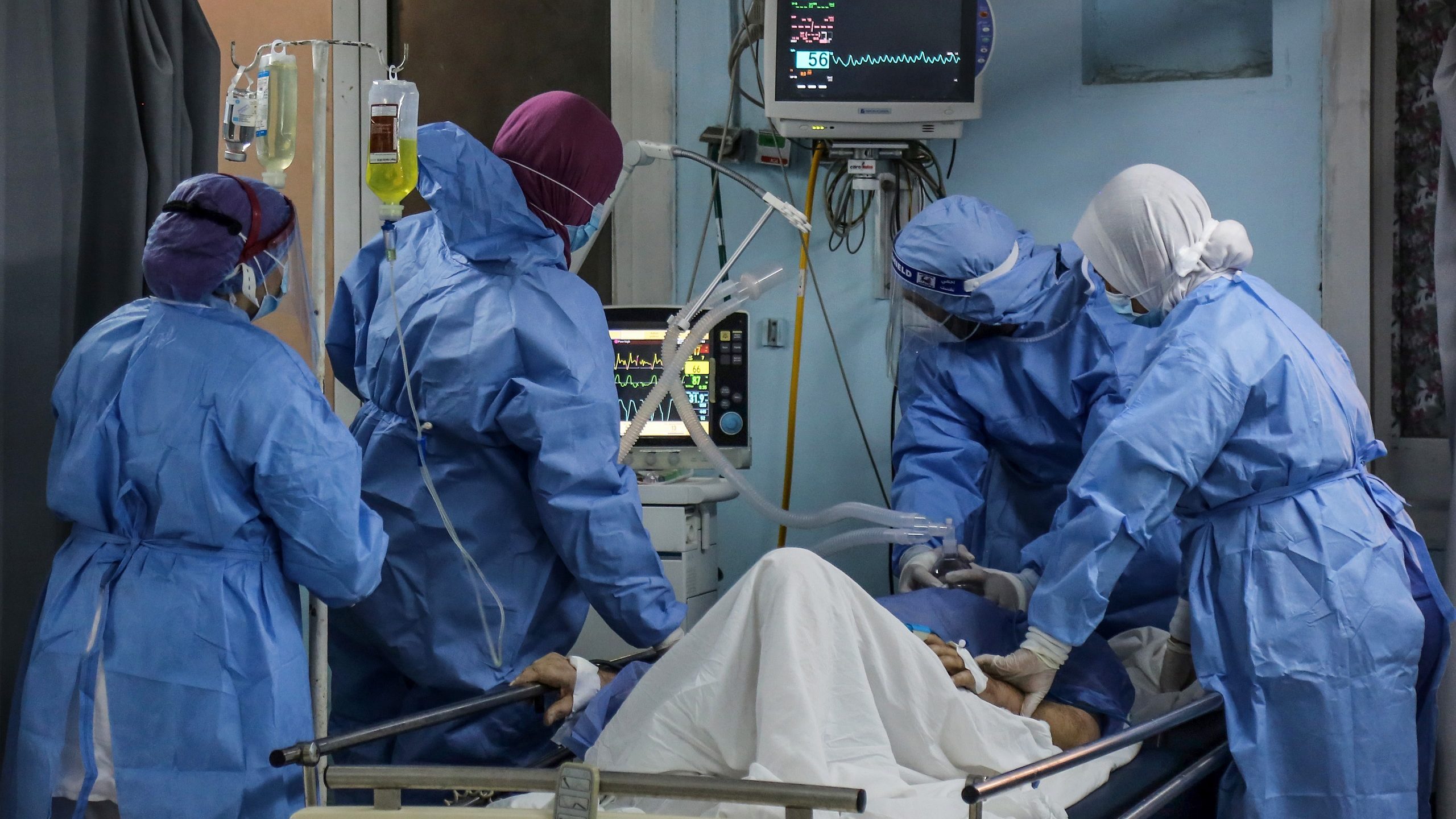Antibiotics May Be Effective Against COVID-19, Egyptian Study Finds
The conventional wisdom says antibiotics are useless against viruses, but there are exceptions
A recent study in an Egyptian hospital shows that the recovery time of patients with moderate to severe COVID-19 who take either of two antibiotics (ceftazidime or cefepime) in combination with a steroid is similar to that of patients given the standard treatment for COVID-19.
This conclusion upends a bedrock truism of medicine: Antibiotics are for bacterial infections and are not effective against viruses.
“Antibiotics DO NOT work on viruses, such as those that cause colds, flu, or COVID-19,” says the website of the US Centers for Disease Control and Prevention, writing “DO NOT” in capital letters to emphasize the point.
But a team of researchers, led by Dr. Ragaey Ahmad Eid of Beni-Suef University, and Dr. Marwa O. Elgendy of Nahda University, both in Beni-Suef, Egypt, knew of cases in which antibiotics were successfully repurposed to treat viral infections after it was shown that they were able to inhibit one or more stages of the virus’s replication cycle, relieve the bad effects of the virus, or manipulate the immune system to help the body deal with the virus.
For example, an American study about five years ago found that the antibiotic azithromycin could limit the replication of the Zika virus in the brains of unborn children, thus potentially protecting against microcephaly, which is caused by the virus in newborns.
In separate research, the antibiotic novobiocin was shown to have a strong antiviral effect against the Zika virus.
And a 2016 study in Thailand showed that the antibiotic minocycline could be used to inhibit replication of the dengue virus.
Testing in a lab setting had already shown that a class of drugs known as beta-lactams could interfere with the replication of the coronavirus. Computer simulations identified two beta-lactams – ceftazidime and cefepime – as effective at disrupting protease (MPro), a key enzyme that the virus uses to replicate.

Schematic representation of the currently used therapeutics against COVID-19. (Eid, Ragaey A., Marwa O. Elgendy, et al. 2021. “Efficacy of Ceftazidime and Cefepime in the Management of COVID-19 Patients: Single Center Report from Egypt” Antibiotics 10, no. 11: 1278.)
The clinical study, conducted in the isolation department of Beni-Suef University Hospital from March 15 to May 20, 2021, compared the outcomes of patients with moderate to severe cases of COVID-19 who were given the standard treatment (110 patients) with the outcomes of COVID patients who were given one of the beta-lactams – either ceftazidime (136 patients) or cefepime (124 patients) – together with steroid dexamethasone.
This standard treatment for COVID-19, approved by the World Health Organization and the Egyptian government, comprises at least seven different medications.
The mean recovery time for patients given the standard treatment was 19 days. The mean recovery time for those given ceftazidime was 13 days and for those given cefepime was 12 days. There were no deaths and all of the patients recovered without complications.
It isn’t clear how much of the antibiotics’ usefulness can be attributed to their efficacy in clearing coinfections, such as pneumonia, which COVID patients often develop, and how much is due to direct attacks on the virus’s ability to replicate.
Nevertheless, the researchers conclude in their article on the study, published in the journal Antibiotics in October 2021, that “ceftazidime or cefepime can currently provide COVID-19 patients extra benefits, being good antiviral agents besides their outstanding antibacterial properties,” and say that the use of either of these beta-lactams, combined with steroids, to manage moderate and severe COVID-19 cases can produce “better outcomes with minor side effects, instead of the currently used complex multidrug treatment protocol.”
Here are the latest COVID-19 numbers for the Middle East and North Africa as of 10 pm Greenwich Mean Time (UTC±0) on Thursday.
| Country | Confirmed Cases | Deaths | Recovered | Active Cases |
| Afghanistan | 164,727 | 7,420 | 146,768 | 10,539 |
| Algeria | 255,836 | 6,618 | 169,972 | 79,246 |
| Bahrain | 398,665 | 1,410 | 341,855 | 55,400 |
| Cyprus | 265,945 | 736 | 124,370 | 140,839 |
| Djibouti | 15,492 | 189 | 15,255 | 48 |
| Egypt | 430,480 | 22,735 | 362,525 | 45,220 |
| Iran | 6,483,799 | 132,624 | 6,121,353 | 229,822 |
| Iraq | 2,233,725 | 24,455 | 2,129,888 | 79,382 |
| Israel | 3,049,005 | 9,013 | 2,510,076 | 529,916 |
| Jordan | 1,280,106 | 13,271 | 1,146,900 | 119,935 |
| Kuwait | 564,735 | 2,503 | 507,174 | 55,058 |
| Lebanon | 948,728 | 9,657 | 682,977 | 256,094 |
| Libya | 441,959 | 6,044 | 395,676 | 40,239 |
| Mauritania | 58,381 | 962 | 56,026 | 1,393 |
| Morocco | 1,141,708 | 15,515 | 1,090,938 | 35,255 |
| Oman | 346,041 | 4,158 | 319,220 | 22,663 |
| Pakistan | 1,442,263 | 29,372 | 1,312,819 | 100,072 |
| Palestinian Territories | 507,565 | 4,859 | 448,204 | 54,502 |
| Qatar | 342,811 | 651 | 324,626 | 17,534 |
| Saudi Arabia | 699,069 | 8,947 | 653,972 | 36,150 |
| Somalia | 25,388 | 1,335 | 13,182 | 10,871 |
| Sudan | 58,208 | 3,442 | 40,329 | 14,437 |
| Syria | 51,569 | 2,995 | 39,263 | 9,311 |
| Tunisia | 917,814 | 26,362 | 791,720 | 99,732 |
| Turkey | 11,940,695 | 88,064 | 11,173,406 | 679,225 |
| United Arab Emirates | 851,537 | 2,253 | 780,893 | 68,391 |
| Yemen | 11,087 | 2,020 | 7,131 | 1,936 |
| Total | 34,927,338 | 427,610 | 31,706,518 | 2,793,210 |

